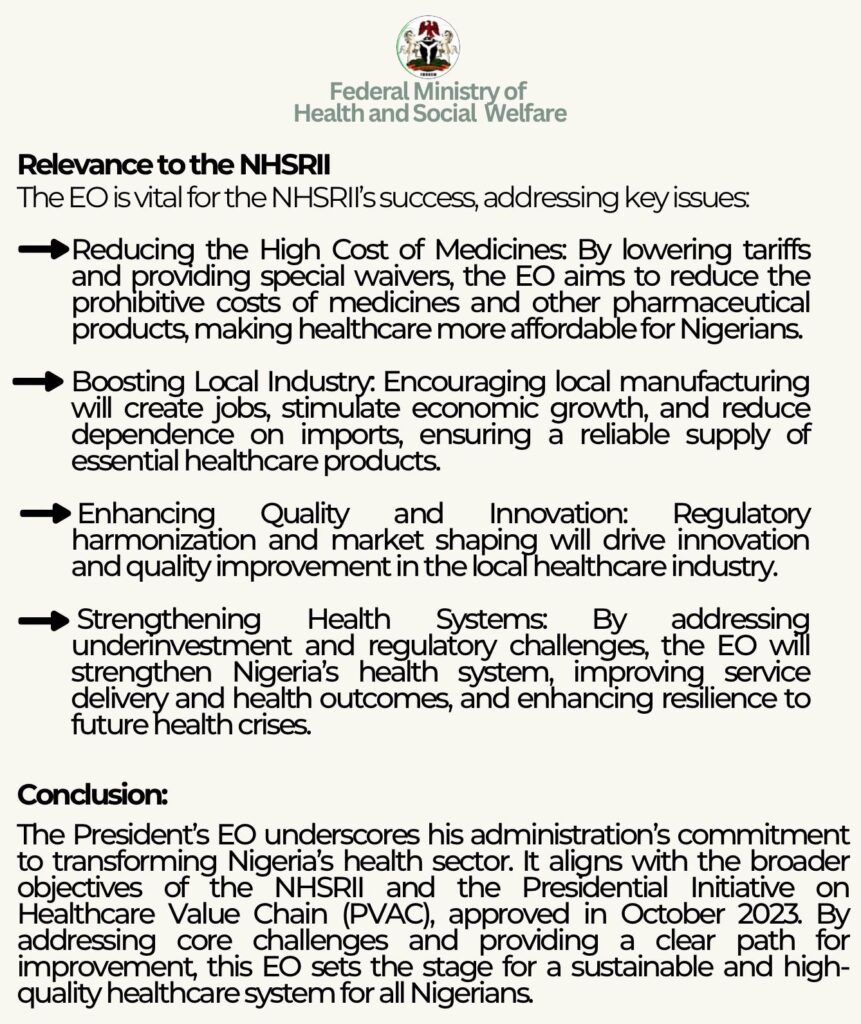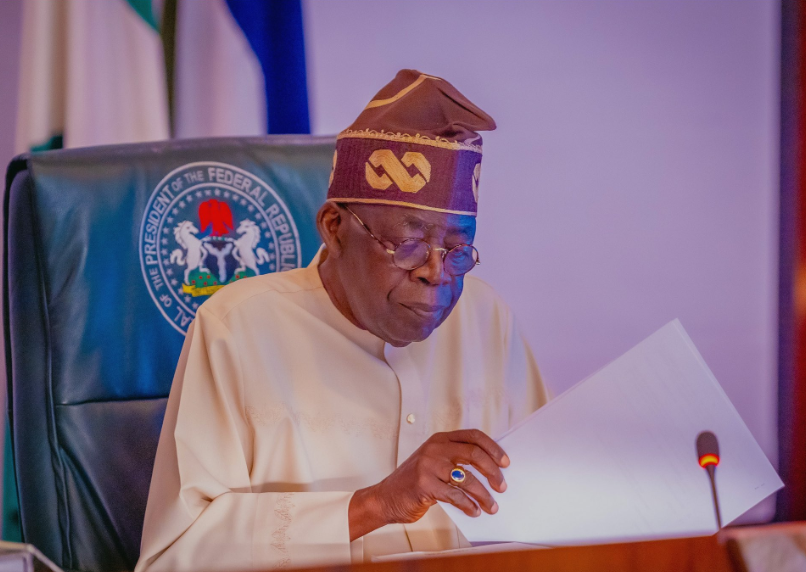By Joke Kujenya
LAUDED AS a pivotal step towards revolutionizing Nigeria’s healthcare sector, President Tinubu’s recent Executive Order has been described by the National Agency for Food and Drug Administration and Control (NAFDAC) as a viable initiative to boost local production, reduce healthcare costs, and foster local investments.
This order addresses longstanding challenges and promises to enhance health outcomes across the nation, according to the agency.
In a Friday June 29, 2024, statement by NAFDAC DG, Professor Mojisola Adeyeye, it says that for six years, the agency has undergone significant transformation, leading to its recognition as a strong and stable regulatory body.
“Under the leadership of the Director General, the agency has introduced various reforms, culminating in notable achievements, including ISO-9001-2015 accreditation in 2019 and recognition as a WHO Prequalified Laboratory. This journey has been marked by efforts to integrate a quality management culture and align with WHO Global Benchmarking standards,” the statement reads.
“NAFDAC’s journey has seen the introduction of several regulatory directives aimed at bolstering local manufacturing capabilities. In 2018, the GMP Road Map was established to ensure compliance with international standards.
“The following year, the Five-Plus-Five directive was introduced to limit the renewal of import licenses for medicines that could be produced locally, thus maximizing local manufacturing capacity. Additionally, the creation of the Pharma Operations Division in 2019 provided better oversight and compliance for local manufacturers.
“In 2021, NAFDAC implemented the Layout Review directive, ensuring that quality is embedded into facility designs from the inception of architectural blueprints. The Ceiling 34 directive further increased the number of medicinal products prohibited from importation due to local production capabilities.
“More recently, in 2023, the agency initiated targeted inspections and testing of locally manufactured medical devices and in-vitro diagnostics to ensure they meet international standards.
“These efforts have spurred a migration from importation to local manufacturing and partnerships, resulting in a 30% increase in new facilities. Local manufacturers have responded positively, redesigning their facilities, particularly during the pandemic, supported by infrastructural funds from President Buhari’s administration.

“Despite these advancements, local manufacturers faced persistent challenges due to the costly importation of all necessary materials, except water. The Director General has consistently advocated for zero tariffs to alleviate these burdens and foster a more conducive environment for local production,”
The recent administration under President Tinubu, alongside Coordinating Minister of Health and Social Welfare Prof. Mohammed Ali Pate and Minister of State for Health and Social Welfare Dr. Tunji Alausa, has introduced an Executive Order to transform the healthcare sector, so, to NAFDAC, this order aims to boost local production, reduce healthcare costs, and promote local investments, addressing long-standing challenges and improving health outcomes.
Key provisions of the Executive Order include zero tariffs and excise duties on specified pharmaceutical machinery, equipment, goods, and accessories, as well as special waivers on pharmaceutical inputs, which is why NAFDAC commends it as this will lower the price of essential medicines and medical supplies.
The order also establishes market-shaping mechanisms, regulatory harmonization, and expedited approval processes to stabilize the local manufacturing market and encourage innovation, among others.
The implementation and compliance of these measures are mandated to agencies like the Nigeria Customs Service, NAFDAC, SON, and FIRS, with waivers and exemptions valid for two years, so, this Executive Order is crucial for the success of the Nigeria Health Sector Renewal Investment Initiative (NHSRII), aiming to reduce medicine costs, boost local industry, enhance quality and innovation, and strengthen the health system.

Prof. Mojisola Adeyeye, DG NAFDAC, said this move emphasized that the EO reflects President Tinubu’s commitment to healthcare transformation, saying it aligns with the broader objectives of the NHSRII and the Presidential Initiative on Healthcare Value Chain (PVAC), paving the way for a sustainable, high-quality healthcare system for all Nigerians.





